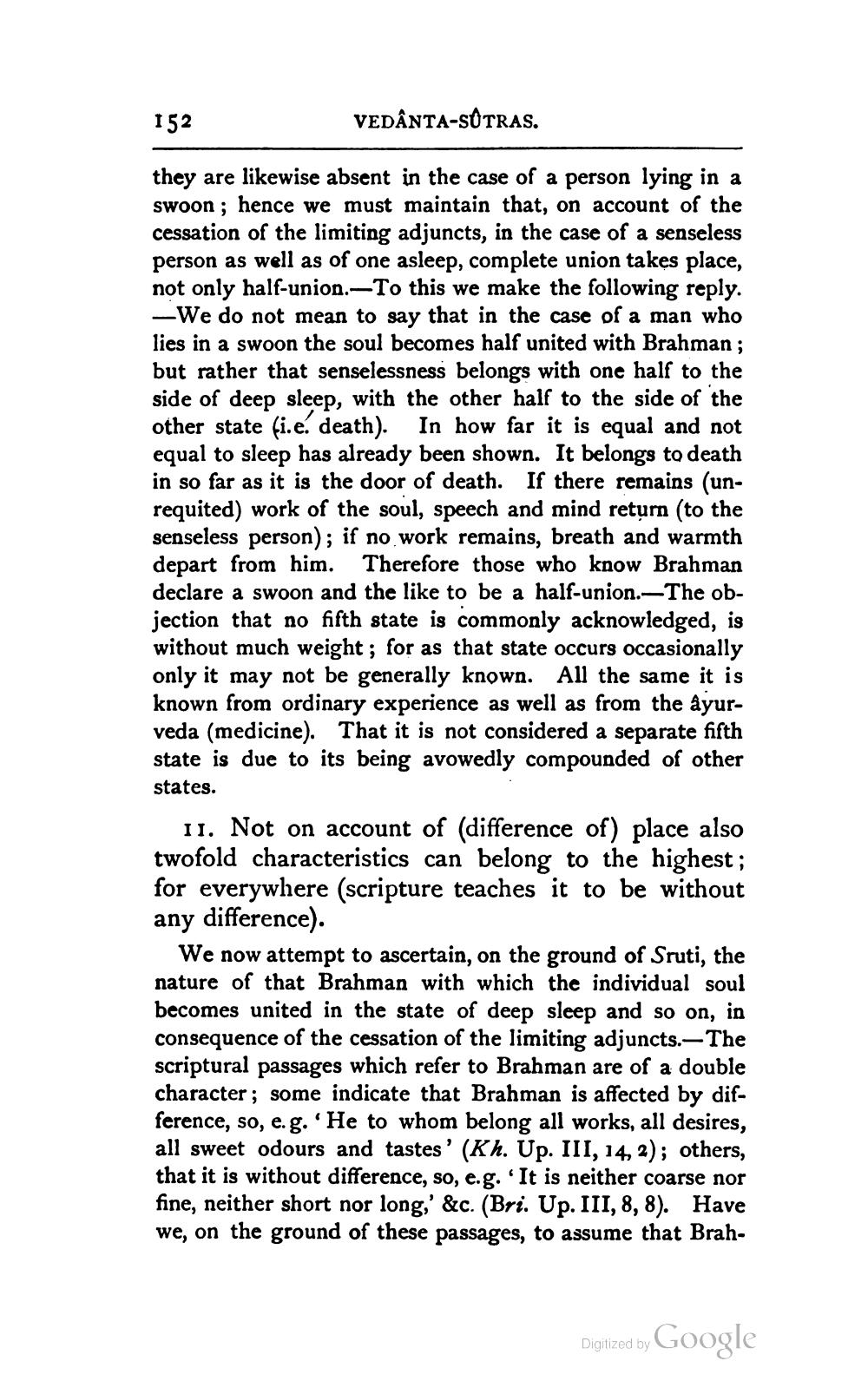________________
152
VEDÂNTA-SOTRAS.
they are likewise absent in the case of a person lying in a swoon; hence we must maintain that, on account of the cessation of the limiting adjuncts, in the case of a senseless person as well as of one asleep, complete union takes place, not only half-union.—To this we make the following reply.
-We do not mean to say that in the case of a man who lies in a swoon the soul becomes half united with Brahman; but rather that senselessness belongs with one half to the side of deep sleep, with the other half to the side of the other state fi.e. death). In how far it is equal and not equal to sleep has already been shown. It belongs to death in so far as it is the door of death. If there remains (unrequited) work of the soul, speech and mind return (to the senseless person); if no work remains, breath and warmth depart from him. Therefore those who know Brahman declare a swoon and the like to be a half-union.—The objection that no fifth state is commonly acknowledged, is without much weight; for as that state occurs occasionally only it may not be generally known. All the same it is known from ordinary experience as well as from the ayurveda (medicine). That it is not considered a separate fifth state is due to its being avowedly compounded of other states.
11. Not on account of (difference of) place also twofold characteristics can belong to the highest; for everywhere (scripture teaches it to be without any difference).
We now attempt to ascertain, on the ground of Sruti, the nature of that Brahman with which the individual soul becomes united in the state of deep sleep and so on, in consequence of the cessation of the limiting adjuncts. The scriptural passages which refer to Brahman are of a double character; some indicate that Brahman is affected by difference, so, e.g. 'He to whom belong all works, all desires, all sweet odours and tastes' (Kh. Up. III, 14, 2); others, that it is without difference, so, e.g. It is neither coarse nor fine, neither short nor long,' &c. (Bri. Up. III, 8, 8). Have we, on the ground of these passages, to assume that Brah
Digitized by
Digilzed by Google




